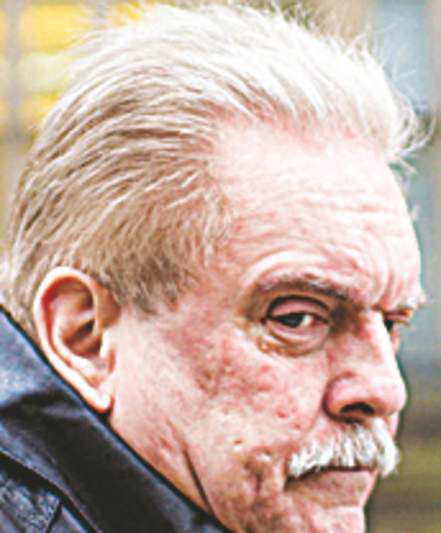Veterans’ lawsuit raises PTSD questions
Published 4:00 am Monday, December 3, 2012

- Shepherd
NEW HAVEN, Conn. — In the summer of 1968, John Shepherd Jr., enlisted in the Army, figuring that the draft would get him anyway. By January 1969 he was in the Mekong Delta, fighting with the 9th Infantry Division.
Within a month, his patrol was ambushed, and Shepherd responded by tossing a hand grenade into a bunker that killed several enemy soldiers. The Army awarded him a Bronze Star with a valor device, one of its highest decorations.
Trending
Yet the honor did little to assuage Shepherd’s sense of anxiousness and futility about the war. A few weeks after his act of heroism, he said, his platoon leader was killed by a sniper as he tried to help Shepherd out of a canal. It was a breaking point: His behavior became erratic, and at some point he simply refused to go on patrol.
“I never felt fear like I felt when he got shot,” Shepherd said last week.
After a court-martial, the Army discharged Shepherd under other-than-honorable conditions, then known as an undesirable discharge. At the time, he was happy just to be a civilian again. But he came to rue that discharge, particularly after his claim for veterans benefits was denied because of it.
Today, Shepherd, 65, is part of a class-action lawsuit against the armed forces arguing that he and other Vietnam veterans had post-traumatic stress disorder when they were issued other-than-honorable discharges. The suit, filed in U.S. District Court, demands that their discharges be upgraded.
The suit raises two thorny issues that could affect thousands of Vietnam veterans: Can they be given a diagnosis of PTSD retroactively, to their time in service, though the disorder was not identified until 1980?
And if they can, should recently instituted policies intended to protect troops with PTSD be applied retroactively to their cases?
Trending
Shepherd’s legal team, students with the Yale Law School veterans legal clinic, argues yes on both counts. In court papers, they assert that it is reasonable to assume that Shepherd and other veterans who were later given PTSD diagnoses began exhibiting troublesome symptoms while in service.
Moreover, under rules put in place during the Iraq war, troops who say they have PTSD must be given medical examinations before they are forced out of the military, to ensure that problematic behavior is not linked to the disorder. If they are given a PTSD diagnosis, service members may still receive an honorable discharge.
“Vietnam War-era veterans, in contrast, have been denied this opportunity for appropriate consideration of the PTSD,” the students said in the complaint.
But the Army says no. In a rejection of an earlier request by Shepherd to upgrade his discharge, the Army tersely rejected evidence that his misconduct 43 years ago was linked to PTSD, and raised questions about whether his platoon leader was actually killed.
A spokesman for the Army said the military has a policy of not discussing pending litigation.
Potential impact
The details of Shepherd’s case aside, the suit could have a wide impact. The Yale team says that its review of records from 2003 to 2012 shows that 154 Vietnam-era veterans petitioned the Army to upgrade discharges because of PTSD, but that only two were successful. Yet the Army Board of Corrections for Military Records granted upgrades nearly half of the time for other cases.
The students estimate that more than a quarter million Vietnam-era veterans were discharged under other-than-honorable conditions, and that thousands of those probably had PTSD. Their suit names as defendants the secretaries for the Army, Air Force and Navy. Vietnam Veterans of America, the veterans service organization, is joining the case as a plaintiff today.
Discharges that are other than honorable can make it harder for veterans to find work and also disqualify them for veterans benefits.
In Shepherd’s case, a Department of Veterans Affairs doctor in 2004 gave him a diagnosis of service-connected PTSD.
As a result, the department will provide health care for his PTSD. But it will not provide him general medical care, unless he is found to have other health problems related to his service.
Veterans disability compensation is also a problem. Shepherd’s undesirable discharge was actually upgraded to a general discharge in the 1970s under a special Carter administration program.
That upgrade should have made it easier for him to apply for disability compensation. But subsequent legislation enacted by Congress said that clemency upgrades like Shepherd’s did not automatically qualify veterans for benefits. Shepherd’s compensation claim was ultimately rejected.
Shepherd, who has been divorced twice and battled through alcoholism and drug abuse, lives in New Haven, getting by on Social Security and a Teamsters pension. (He drove trucks for years.) He could use the extra money from disability compensation, but what matters as much, he says, is removing the stain of his discharge.
“I want that honorable,” he said. “I did do my part, until I really felt it wasn’t worth getting killed for.”








